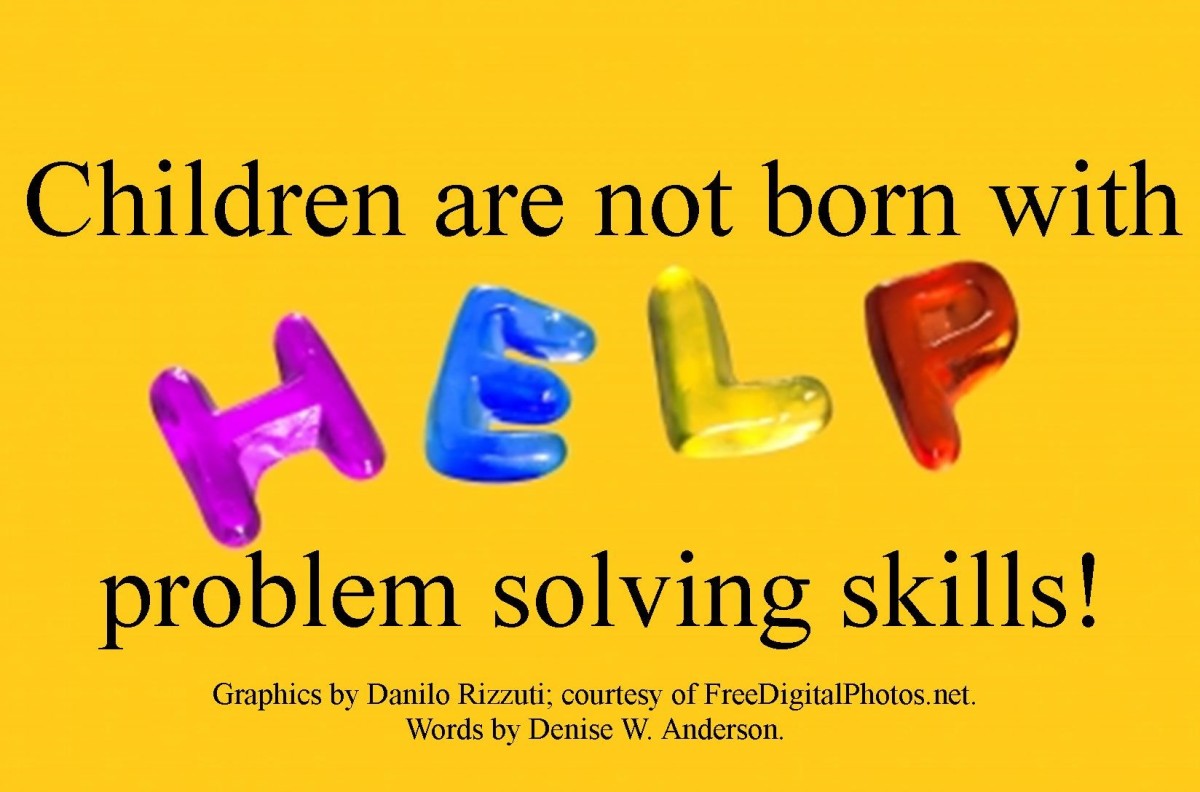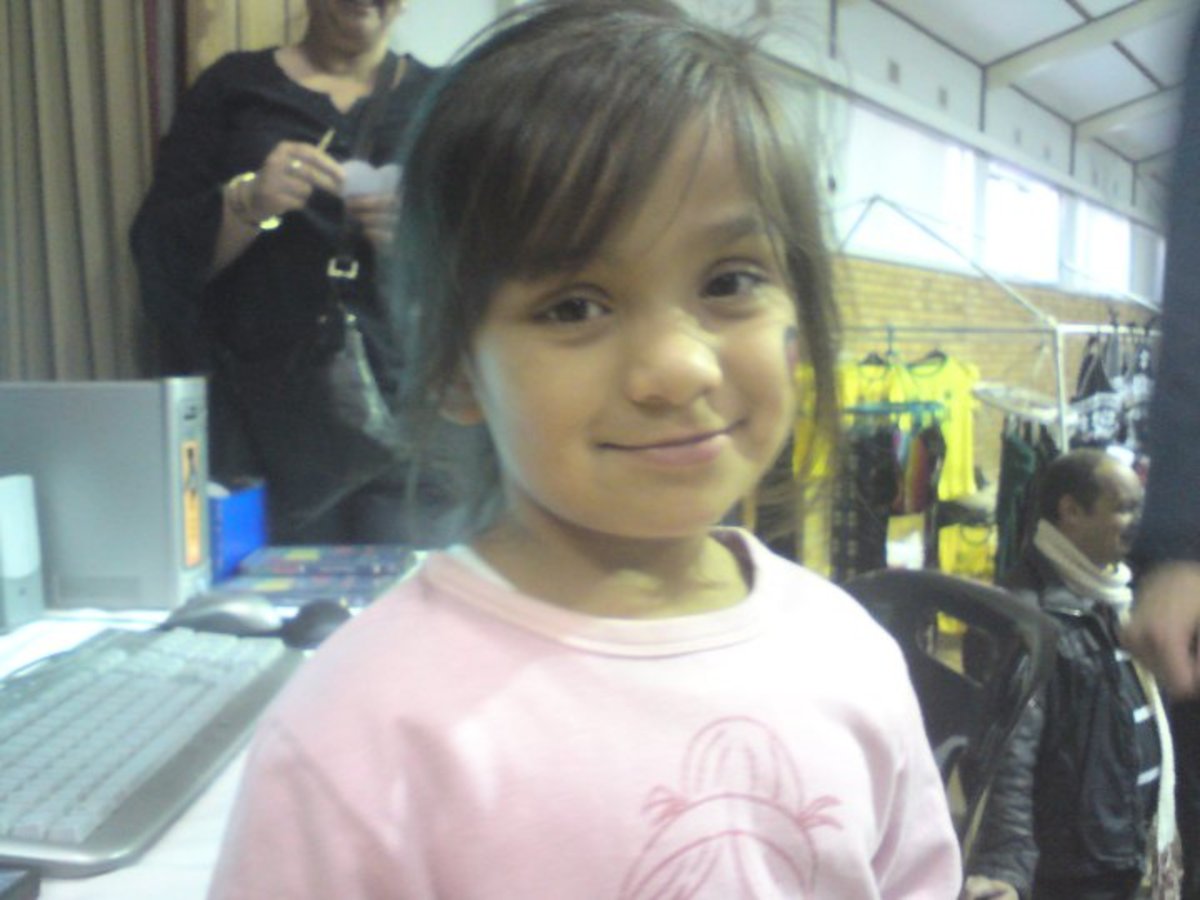Teach English in Korea: Korean Kiddos
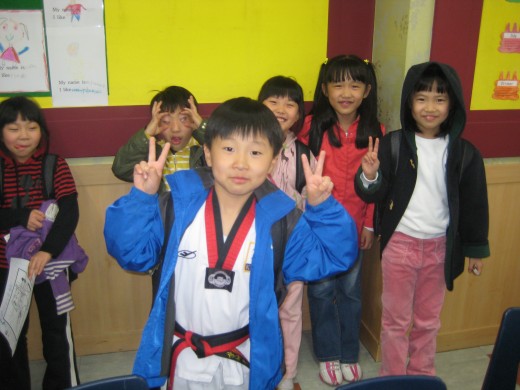
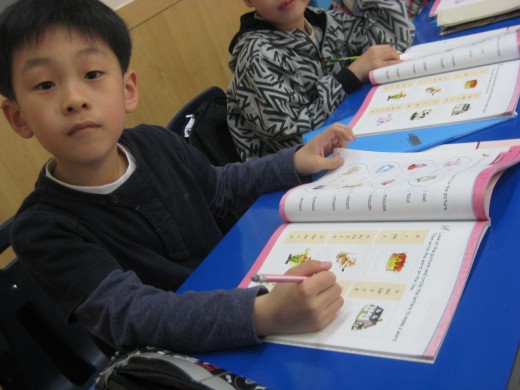
One of the best and worst parts of teaching children English as a Second Language in Korea is... well, the children. On some days, they can make the job that you have signed up to do for one year so incredibly rewarding that if your boss asked you to re-sign for another year, in that moment, you'd scribble away your John Henry without a second thought. Other days however, lets just say that rewarding is not the word that you would use to describe the torture that you just suffered. Most days fall somewhere in between, and knowing what to expect can certainly give you a leg up on the little rascals.
The main difference -- aside from many Korean children being irresistibly cute -- between Korean children and their western counterparts is in their upbringing, nothing more, nothing less. They are expected to act a certain way at all times and although intrinsically driven to succeed like most kids, are also pushed really hard by their parents, schools, teachers and Korean society in general. In many ways this works to the kids' benefits as they learn a lot, and are quite knowledgeable and mature for their ages, but they're trying to cram in a lot of stuff, and you can sometimes have too much of a good thing. Aside from public school, and their mounds of public school homework, your English class and that of your Korean teaching partner, you can also expect that the children you teach are involved in a multitude of other activities. Almost every child in Korea goes to a piano academy (hakwon), and Korean, Chinese and math hakwons are almost as popular. There are also Taekwondo hakwons, cooking hakwons, science hakwons, and everything-else-under-the-sun hakwons. There are even hakwons to teach Koreans how to show western-style facial expressions... madness. Needless to say your kids will be busy, tired and occasionally too busy to do their homework.
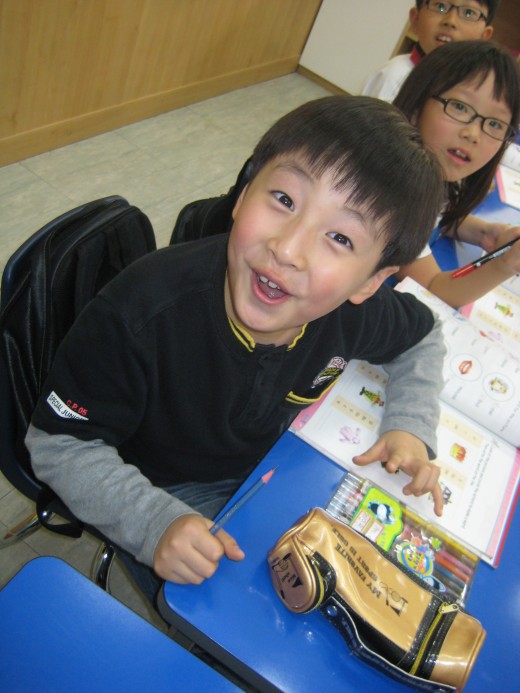
In spite of this classical conditioning of Korean children as a group, individual differences persist and somehow the dedicated kids always manage to finish all their homework, stay awake in class, and understand English grammar better than the average native speaker. Likewise, there is the occasional slacker, who despite the fact that this is his only hakwon/day care facility, still never manages to do his homework, and seems to think that watching paint dry is more interesting than listening to you speak. I'll bet you can imagine how each type of child plays into the rewarding/torture scenarios listed above.
Nothing strikes fear into the heart of your average Korean child quite like the idea of you telling their mother about their bad behaviour, and it is a tool to be used to your advantage. This contributes to the reason why your children will invariably behave better for, and be more afraid of, your Korean teaching partner than they are of you. Your Korean teaching partner has an advantage over you in that regard because, unlike you, your Korean teaching partner speaks fluent Korean and cannot only yell at the offending child with the knowledge that the child understands perfectly well everything that he or she is saying, but also has the ability to talk directly to that same child's mother and father. Herein lies the most crucial difference. The majority of your Korean children are smart, very smart, and if they're not, they're usually smart enough to hang around with kids who are, and who can help them out. Your Korean children know that you do not speak Korean, and know that this means that you have no direct link to contacting their parents, which instantly makes you less of a threat than you would otherwise be.
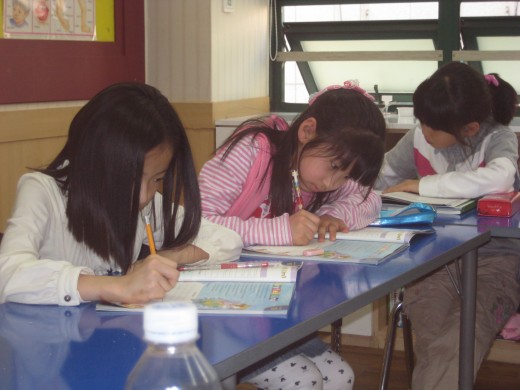
Because of the language barrier between you and parents, one of the most effective methods of dealing with Korean children is to have a good working relationship with your teaching partner than involves an open flow of communication about how students are doing between you and them. You should also endeavour to make sure that your students are aware that this line of communication exists so they don't play you against each other, and so your students understand that just because you don't speak Korean, doesn't mean that their parents won't find out if they try to pull a quick one on you. Just knowing that your and your teaching partner have a working relationship, can really help tame some of the more outrageous antics and hi-jinks that your kids can get up to.
Korean children also respond very well to praise and to small rewards for good behaviour such as candy. If your school allows you to play educational games with your children, they are one of the most effective ways to reinforce previous learning, or even teach new concepts without the kids even knowing that learning or review is taking place. After being in public school and/or other hakwons all day, and looking forward to mountains of homework once they finally do arrive home, getting kids up and out of their seats makes a world of difference in keeping your kids awake and motivated to learn.

Korean kids are generally smart and hard working little people. Even the 'bad' ones are so proud of themselves when they do well, and often act out only from frustration and a lack of attention/ understanding of what it being taught. Just like any children, teach them with love and most of them will love you back. As for the kids that continue to give you a hard time, love them even more and talk to your Korean teaching partner or supervisor to see if they can help. Every kid has a bad day now and then, but usually with the help of your Korean teaching partner or supervisor the majority of big issues can be resolved or reduced. You'll still have some bad days, mixed in with the good, but when you do, don't forget the good ones and all the rewarding and touching experiences you've shared these kids, and the experiences still to come.
Laura Berwick is an English teacher at a private English academy in Seoul, South Korea. For more information about her, or her Korean experience please visit her blog.




